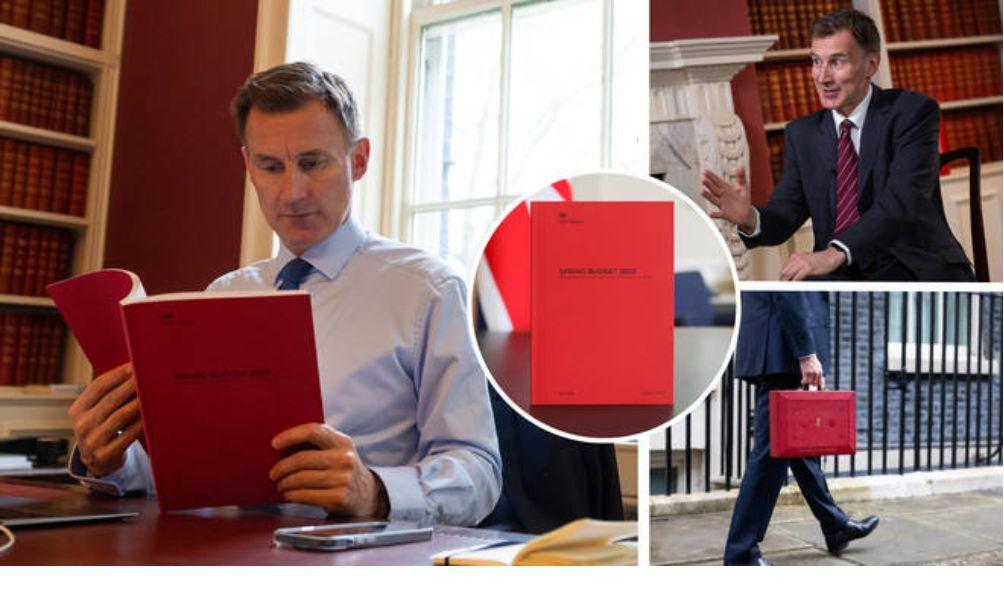Chancellor Jeremy Hunt pledges 30 hours of childcare for toddlers in Budget
According to reports, Jeremy Hunt will pledge 30 hours of free childcare per week for children aged one and two in the Budget on Wednesday.
Families with children aged one and two do not currently receive assistance to cover the period between the conclusion of parental leave and the provision of free nursery hours for children aged three and four.
According to the Guardian and Sky News, the Chancellor will provide a £4 billion expansion to free childcare in his budget plan on Wednesday.
The Guardian report lacked citations for its sources. Number 11 stated it would not comment before the budget was released.
Extending the provision could be a key component of Mr. Hunt’s argument for reducing the cost of living and putting parents to work.
According to children’s charity Coram, the average annual price for full-time nursery childcare in England for a child under two was more than 14,000 pounds in 2022.
That makes Britain’s childcare among the most expensive in the world, according to the OECD, and the government is being urged to do more to help with the costs to boost workforce participation among parents of young children.
Nursery providers in England have raised concerns about underfunding, with complaints about the lack of government investment.
Currently, all three- and four-year-old families are eligible for 38 weeks of 15 hours of free child care per week.
Households can qualify for 30 hours of free childcare a week if parents earn the equivalent of 16 hours a week at the national minimum or living wage.
ALSO READ: US Slams Russia’s ‘Brazen’ Aggression as Fighter Jet Brings Down Drone, Warns of Potential War
Neil Leitch, chief executive officer of the Early Years Alliance, stated that the “devil was in the details” of any plan.
“We know from harsh experience that what can sound like an impressive investment, in theory, can end up being wholly inadequate in practice, and so understanding exactly how this announcement will translate into hourly funding rate changes, especially in light of the extension of the 30 hours offer to one and two-year-olds, will be key to understanding the impact on the sector,” he said.
James Bowen, director of policy for the school and nursery leaders’ union NAHT, said: “While we will need to look closely at the detail if the Government does increase the hourly funding rates to early years providers this will be welcome news.
“We are aware that the funding settings currently receive from the government is grossly insufficient, and many providers cannot afford to operate at these levels.”
Paul Johnson, director of the Institute for Fiscal Studies, said many would welcome any announcement.
But he warned on Twitter the “whole system is hugely complex”.
“As universal support has expanded, targeted support for children most in need have contracted,” he wrote.
Mr. Hunt’s fiscal package comes in the wake of the autumn statement last November, which saw the Chancellor hike taxes as he and Prime Minister Rishi Sunak sought to restore UK financial credibility after Liz Truss’ short-lived premiership.
With the UK narrowly avoiding a recession and the latest economic figures giving the reason for optimism, the Chancellor is expected to focus his Budget on growth measures as he seeks to reignite the economy and encourage people back to the workforce after the Covid-19 pandemic.
ALSO READ: Silicon Valley Bank’s Collapse and Implications for the Tech Industry
The Tory Chancellor is expected to cancel the planned £500 hike in the UK Government’s ceiling for energy bill support which was due to come into force next month.
For the average household that means bills will stay at around £2,500, instead of going up to £3,000 as was previously announced.
On fuel duty, some Tory backbenchers have urged the Chancellor to act to support motorists facing a 12p-per-liter hike in fuel duty in March.
A 23% increase in the duty is penciled in for this month, but chancellors have repeatedly frozen the levy in the past.
The Treasury has been under pressure for months to boost the defense budget, as the war in Ukraine continues.
The Prime Minister has promised an extra £5 billion for the military over two years, with an extra £1.98 billion this year and £2.97 billion next year for defense.
HEY READER. PLEASE SUPPORT THIS SITE BY CLICKING ADS. DON’T FORGET TO HIT THE NOTIFICATION BELL FOR MORE UPDATES AROUND THE GLOBE.
